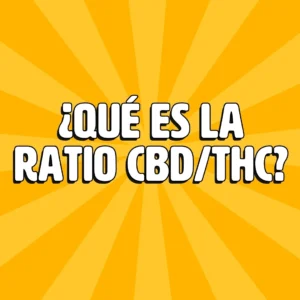In today’s post we are going to talk about the legal situation of cannabis at the European level and especially at the national level: is cbd legal?
This information responds to the situation of said regulation as of July 2022, so any subsequent update would be outside the treatment that we are going to expose.
Is CBD legal?
Let’s get to know the different aspects of cannabis legality, both at European and national level.
Situation of CBD in Europe
One of the most repeated questions in the world of cannabis is its legal status with respect to production, marketing and consumption.
Without going into depth, we can say that in principle CBD is legal at the European level, but it is subject to the regulation that each country applies in its territory.
CBD Production Europe
As for the production of CBD in Europe, the legality of this activity is subject to the regulation of each of the European countries, so the countries where the production of cannabis is allowed are:
In which European countries is it legal to produce CBD?
The Netherlands tops the list of European CBD-producing countries, in fact, it is the first country to legalize cannabis production.
Another European country where CBD production is legal is Italy , which since 2019 has authorized the cultivation of cannabis for personal use.
France , on the other hand, is another of the countries that produces cannabis in Europe, in fact, it tops the list in terms of the amount of CBD production (it accounts for 37% of European production).
Portugal is also another of the cannabis-producing countries. We must be very aware of this market since its weather conditions and cheap labor can position Portugal as one of the most important legal producers of CBD in Europe.
And finally, Spain, where current legislation contemplates that the cultivation and production of cannabis flowers to obtain CBD is totally legal, as long as a legal maximum of 0.2% THC (tetrahydrocannabinol) is not exceeded.
Apart from the territories already listed, there are other producing countries in Europe, although their production is not as significant.
Marketing CBD in Europe
The recognition of the properties in various studies and the numerous beneficial effects of CBD have led to great advances in terms of the commercialization of this substance.
Therefore, in the resolution of November 19, 2020, the High Court of Justice of the European Union allows the marketing of CBD products in any member country. One of the main conditions and regulatory measures of Cannabidiol is that all CBD-based products contain no more than 0.2% THC. A maximum amount of tetrahydrocannabinol so that CBD products are not considered narcotics.
CBD Consumption in Europe
As for cannabis consumption, as you well know, there is more than one way to make use of both flowers and oils made from cannabidiol. In the case of our country, it will be more accurate to talk about use and not consumption.
Well, just like the production and marketing of CBD, the same thing happens with consumption. Depending on our location, different types of cannabis consumption will be allowed or not.
As for flowers, their use can be done in different ways: by smell, smoking, or by means of vapers. Likewise, cbd oil can be effective for both topical and sublingual use. In Spain, CBD flowers are for collector’s use, in no case can they be smoked. And the rest of the CBD products are for topical use.
Depending on our location within the European framework, the use of cannabis can vary.
CBD gorilla grillz
All our CBD products are marketed with laboratory analysis certification (THC <0.2%) in accordance with European legislation.
All products marketed by Gorilla Grillz comply with European laws on the cultivation of CBD hemp:
- European Decree No. 639-2014
- European Regulation No. 1307/2013.
Is CBD legal in Spain?
An article published by the Canna Foundation says that because CBD is not a psychotropic substance, it is not on the list of psychotropic substances in the 1971 Vienna Convention, unlike THC, which is present in cannabis flowers. In the event that a CBD product is legally marketed in a European Union (EU) country, the Spanish authorities may not oppose the sale of a food supplement made from hemp in the EU, respecting the principle of mutual recognition.
The Judgment of the Court of Justice of the EU of 5 March 2009 in Case C 88/07 (Commission v. Kingdom of Spain) on the free movement of goods and products based on medicinal plants legally manufactured or marketed as food supplements or dietary products in other Member States was concisive. Regarding CBD, there is a legal vacuum given that European regulation prohibits the use of narcotics as an ingredient but CBD, which is not a narcotic or psychotropic, is not expressly prohibited. With regard to cannabis-based products, their use is of a food nature, mainly as food supplements.
Spain lacks any regulation of the use of cannabis as food, but in any case only vitamins and minerals can be recognised as food supplements, not plants, so it is not legally possible to register a food supplement made from hemp in Spain .
In some states plants are considered as food supplements, and in countries such as Germany, Switzerland, Belgium, Holland, Italy and the United Kingdom there is a regulation on the use of cannabis as food.”
Therefore, in Spain it is possible to market a CBD product as long as it contains <0.2% THC, which is the estimated amount in the European Union. Depending on the country in which we are, the percentages range between 0.2% and 0.3%.
This law is in the process of changing because in many European countries its consumption as a food supplement is regulated, in fact, there are many studies that consider CBD a food supplement with many benefits.
Bibliography and Digital Sources
- Russo, E. B. History of cannabis and its preparations in saga, science, and sobriquet. Chem. Biodivers. 4, 1614–48 (2007).
- Coile, D. C. Cannabis and CBD science for dogs: natural supplements to support healthy living and graceful aging. (Assisi Bio Press, 2016).
- Izzo, A. A., Borrelli, F., Capasso, R., Di Marzo, V. & Mechoulam, R. Non-psychotropic plant cannabinoids: newtherapeutic opportunities from an ancient herb. Trends Pharmacol . Sci. 30, 515–527 (2009).
- Brenneisen, R. Chemistry and Analysis of Phytocannabinoids and Other Cannabis Constituents.
- Velasco, G., Sánchez, C. & Guzmán, M. Anticancer mechanisms of cannabinoids. Curr. Oncol. 23, S23-32 (2016).
- Hasenoehrl, C., Storr, M. & Schicho, R. Cannabinoids for treating inflammatory bowel diseases: where are we and where do we go? Expert Rev. Gastroenterol. Hepatol. 11, 329–337 (2017).
- Regulation (EU) No 1307/2013 of the European Parliament and of the European Council.
- Pisanti, S. et al. Cannabidiol: State of the art and new challenges for therapeutic applications. Pharmacol. Ther. 175, 133–150 (2017).
- Mechoulam, R. & Hanus, L. A historical overview of chemical research on cannabinoids. Chem. Phys. Lipids 108, 1–13 (2000).
- Svízenská, I., Dubový, P. & Sulcová, A. Cannabinoid receptors 1 and 2 (CB1 and CB2), their distribution, ligands and functional involvement in nervous system structures–a short review. Pharmacol. Biochem. Behav. 90, 501–11 (2008).
- Elphick, M. R. The evolution and comparative neurobiology of endocannabinoid signalling. Philos . Trans. R. Soc. B Biol. Sci.367, 3201–3215 (2012).
- Lötsch, J., Weyer-Menkhoff, I. & Tegeder, I. Current evidence of cannabinoid-based analgesia obtained in preclinical and human experimental settings. Eur. J. Pain (2017).
- Schicho, R. & Storr, M. IBD: Patients with IBD find symptom relief in the Cannabis field. Nat. Rev. Gastroenterol. Hepatol.11, 142–3 (2014).
- Barrie, N. et al. Endocannabinoids in arthritis: current views and perspective. Int. J. Rheum. Dis. 20, 789–797 (2017).
- Freundt-Revilla, J., Kegler, K., Baumgärtner, W. & Tipold, A. Spatial distribution of cannabinoid receptor type 1 (CB1) in normal canine central and peripheral nervous system. PLoS One 12, e0181064 (2017).
- Canna Foundation. Cannabis and the endocannabinoid system. (2017).
- Devinsky, O. et al. Cannabidiol: pharmacology and potential therapeutic role in epilepsy and other neuropsychiatric disorders. Epilepsia 55, 791–802 (2014).
- MacCallum, C. A. & Russo, E. B.Practical considerations in medical cannabis administration and dosing. Eur. J. Intern. Med. (2018).
- Narimatsu, S. et al. Inhibition of hepatic microsomal cytochrome P450 by cannabidiol in adult male rats. Chem. Pharm. Bull. (Tokyo). 38, 1365–8 (1990).
- Benowitz, N. L., Nguyen, T.-L., Jones, R. T., Herning, R. I. & Bachman, J. Metabolic and psychophysiologic studies of cannabidiol-hexobarbital interaction. Clin. Pharmacol. Ther. 28, 115–120 (1980).
- Anand, P., Whiteside, G., Fowler, C. J. & Hohmann, A. G. Targeting CB2 receptors and the endocannabinoid system for the treatment of pain. Brain Res. Rev. 60, 255–66 (2009).
- Kogan, L. R., Hellyer, P. W. & Robinson, N. G. Consumer’s perceptions of hemp products for animals. Scientific Report. AHVMA J. @Bullet 42, (2016).
- Lee, J. L. C., Bertoglio, L. J., Guimarães, F. S. & Stevenson, C. W. Cannabidiol regulation of emotion and emotional memory processing: relevance for treating anxiety-related and substance abuse disorders. Br. J. Pharmacol. 174, 3242–3256 (2017).
- Blessing, E. M., Steenkamp, M. M., Manzanares, J. & Marmar, C. R. Cannabidiol as a Potential Treatment for Anxiety Disorders. Neurotherapeutics 12, 825–836 (2015).
- itzgerald, K. T., Bronstein, A. C. & Newquist, K. L. Marijuana poisoning. Top. Companion Anim. Med. 28, 8–12 (2013).
- Grayson, M. Cannabis. Nature 525, S1–S1 (2015).
- SEIC. Spanish Society for Research on Cannabinoids. Available at: http:// www.seic.es/.
- U.S. National Library of Medicine. Clinical Trials. Available at: https:// clinicaltrials.gov/ct2/home.
- Booz, G. W. Cannabidiol as an emergent therapeutic strategy for lessening the impact of inflammation on oxidative stress. Radic. Biol. Med. 51, 1054–61 (2011).
- Valastro, C. et al. Characterization of endocannabinoids and Cannabis and cannabinoids | Mechanism of action and potential as a therapeutic adjunct in pets. Page 15 related acylethanolamides in the synovial fluid of dogs with osteoarthritis: a pilot study. BMC Vet. Res. 13, 309 (2017).
- Malfait, A. M. et al. The nonpsychoactive cannabis constituent cannabidiol is an oral anti-arthritic therapeutic in murine collagen-induced arthritis. Proc. Natl. Acad. Sci. 97, 9561–9566 (2000).
- MacFarlane, P. D., Tute, A. S. & Alderson, B. Therapeutic options for the treatment of chronic pain in dogs. J. Small Anim. Pract. 55, 127–134 (2014)
SOUTHERN PHARMA SPAIN S.L will not assume any liability arising from the use by third parties of the content of the website and may exercise all civil or criminal actions that correspond to it in the event of infringement of these rights by the user. It is absolutely forbidden to use the website or any of its elements for illicit purposes. The benefits and properties of cbd that could be read on the website www.gorillagrillz.com are in no way attributed to the products sold on the website. CBD products are not medicines and should not replace treatments with them. What you can read on our website are not official medical claims but references to preclinical studies. If you have any questions, you can consult with a professional health personnel. We remind you that in Spain CBD products are for topical use. All products have THC<0.2% analyses in accordance with Royal Decree 1729/1999.
| Pablo Ruiz Professional copywriter. |












